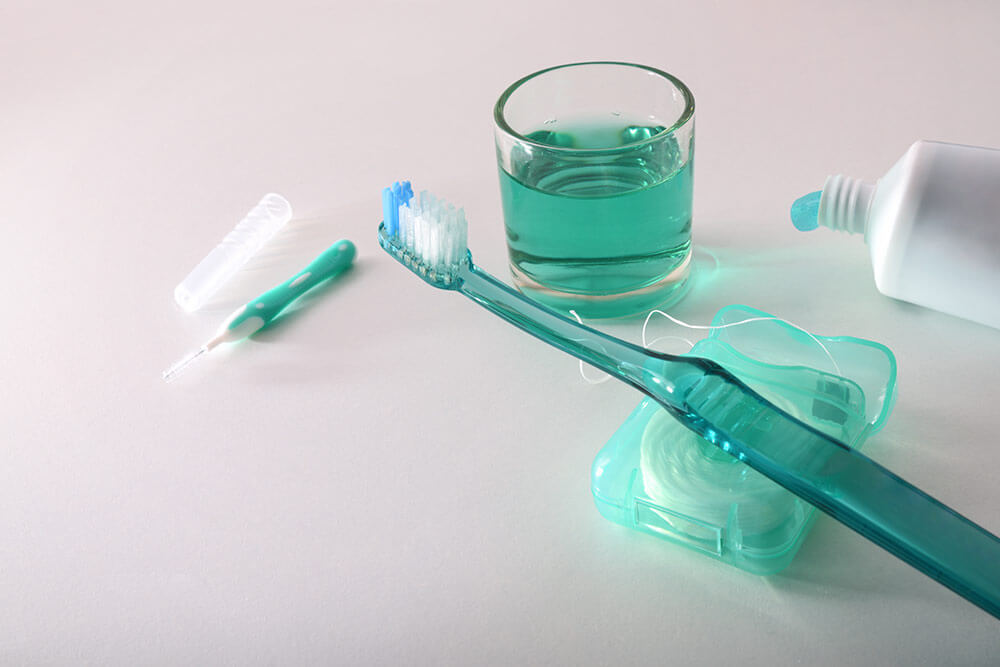
GUM DISEASE
“45% of the UK adult population are affected by gum disease”
UK Adult Dental Health Survey, 2009

TREATMENTS
Our staff are happy to discuss any questions you may have so call us and book your orthodontic consultation.
01162 832 701
or email us at reception@aylestonehouse.co.uk
Healthy Gums
Having healthy gums is important in making sure your teeth last a lifetime. The importance of regular dental check-ups & maintenance of good oral hygiene can’t be recommended too highly. Healthy gums should be firm, pink and do not bleed!
During our dental check-ups our dentists thoroughly examine the gums and record their findings so the gum health can be monitored. Where required the dentist may advice a maintenance program to treat and/or prevent further progression of any gum disease.
Gum disease (Gingivitis) causes red & inflamed gums, that often bleed. Without treatment Gingivitis can lead to Periodontal Disease (Periodontitis). This damages the area surrounding the tooth & tissues, that in turn leads to tooth loss.
Infection and inflammation spreads initially from the gums (gingiva) to the ligaments and bone that support the teeth. Loss of support causes the teeth to become loose and eventually fall out.
Dental Hygiene
Dental Hygiene (Oral Hygiene) is the practice of keeping the mouth, teeth, and the gums clean and healthy, as by regular brushing and flossing and preventive dental care.
Good dental hygiene helps to prevent a variety of dental problems – mainly plaque and tartar (calculus), which are the main causes of gum disease (Gingivitis, Periodontitis) and caries (Tooth Decay). Good oral hygiene may also help to prevent or delay dental erosion.
Dental hygiene treatments will remove any plaque or tartar from your teeth. You will receive a professional clean with specialist equipment to remove plaque and tartar. It’s important to learn how to ensure your teeth remain plaque free and our dental team will show you the best ways to brush, and how to clean in between your teeth using interdental brushes or floss, to remove the bacterial ‘plaque’ which forms constantly on your teeth.
Sensitive Teeth
Dental discomfort can arise when eating or drinking something hot or cold. There are many causes to sensitive teeth such as over vigorous brushing, gum disease, tooth grinding, receding gums or it could be a sign of something more serious. Our dentists can identify the source of the problem and then from there treat the sensitivity accordingly.
Fresh Breath
Bad breath, medically called halitosis, can result from poor dental health habits and may be a sign of other health problems. Bad breath can also be made worse by the types of foods you eat and other unhealthy lifestyle habits.
It can be an embarrassing hygiene problem that unfortunately affects others as well as yourself. It is a common problem that can affect anyone at any age. It may be a superficial problem but it can also have a more serious cause. Either way, our dental specialists will identify the cause and provide a solution, and by following their advice and maintaining a good oral hygiene routine you can overcome bad breath!
For further advice please see the NHS advice on preventing bad breath.
Oral Cancer Screening
Oral Cancer Screening is a part of your regular dental check-up. Early detection is vital, so if you have any concerns, please don’t delay in making an appointment.
More information can be found at the Mouth Cancer Foundation website or from the NHS mouth cancer page.
